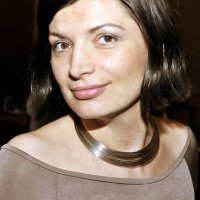Poland - Interview with Marzena Kolczynska
YouthBank in Poland is in its infancy. With the successful completion of the pilot 'edition' in 2015 Marzena Kolczynska, the National Coordinator, is looking ahead with enthusiasm to a second year and to building on and developing the programme.
Thanks to Sheena McGrellis for carrying out the interview on behalf of YBI

Last year three YouthBanks were established in small local communities in Poland, involving 30 Grant Makers, funding 16 local and diverse projects. As Marzena comments, the goal for these local YouthBanks was set very high from the start, as they were tasked with raising 100% of the funds needed for the projects. Meeting the challenge head on, the young Grant Makers, or 'Youth Team Leaders' raised €7,500, including matched funding.
Having reached their target they were then in a position to fund applications from their local communities. The Grant Makers in Poland were keen to support projects that not only met the needs of young people, but also those of the community as a whole. They awarded projects that promoted community integration, and those that generated added value for the young people and their community. A good example of this approach was in Bieżuń where a group of young people secured funding from their local YouthBank to help rebuild the community park. The young people, with their grant, bought new park benches while the Major of the city undertook to clean up the park and made it more accessible to all. Another project in Płock produced a music video with sign language called 'Let's break down the silence.' And in Żuromin, YouthBank funding enabled a group of young people to publish a book of poems and photographs with a particular focus on culture. For Marzena the YouthBank programme is not just about funding projects, but is also about the added educational and learning experience that young people gain on each step of the journey.
Making that process more accessible for all young people is one of Marzena's ongoing goals. In consultation with the local YouthBanks she is working to 'refine the paperwork' associated with the methodology, to make it 'simpler and more user friendly'. Marzena welcomes the role of technology in this endeavour, and indeed, its role in supporting new and existing YouthBanks across Poland in general. She is not giving up on face to face contact, however, and is organising a number of workshops for the Youth Team Leaders in 2016, one of which will run over three days in the Spring.
Setting up YouthBank in Poland Marzena faced a lot of 'unknowns', and clearly welcomed the support of YouthBank International and other more established YouthBanks such as that in Romania. A study visit there last year was so inspiring for Marzena, and the young people who accompanied her, that she is hoping to find a sponsor for a similar trip this year. As Coordinator, she has identified a number of priorities as part the National development strategy. Top of this list is building awareness of the YouthBank brand. Last year over 90 YouthBank related articles were published in the local media. As a new concept in Poland, Marzena says more work needs to be done to inform communities of the social and educational aspect of YouthBank, to build trust in the brand, and to engage support from communities and businesses. Brand awareness will be crucial to her fundraising strategy this year. Marzena is keen to explore other funding opportunities and is considering crowd funding as one possibility.
YouthBank in Poland is in confident mode. Marzena is passionate about the programme and its capacity to offer opportunities for personal and skills development: 'YouthBank gives our young people the opportunity to make mistakes, to develop their critical thinking… to express their beliefs... it enhances their skills for the labour market.' She hopes that in 2016 twenty five projects will be funded, and many more young people and communities will benefit across Poland.
'Our role is to empower young people, to show them they can change the world.'